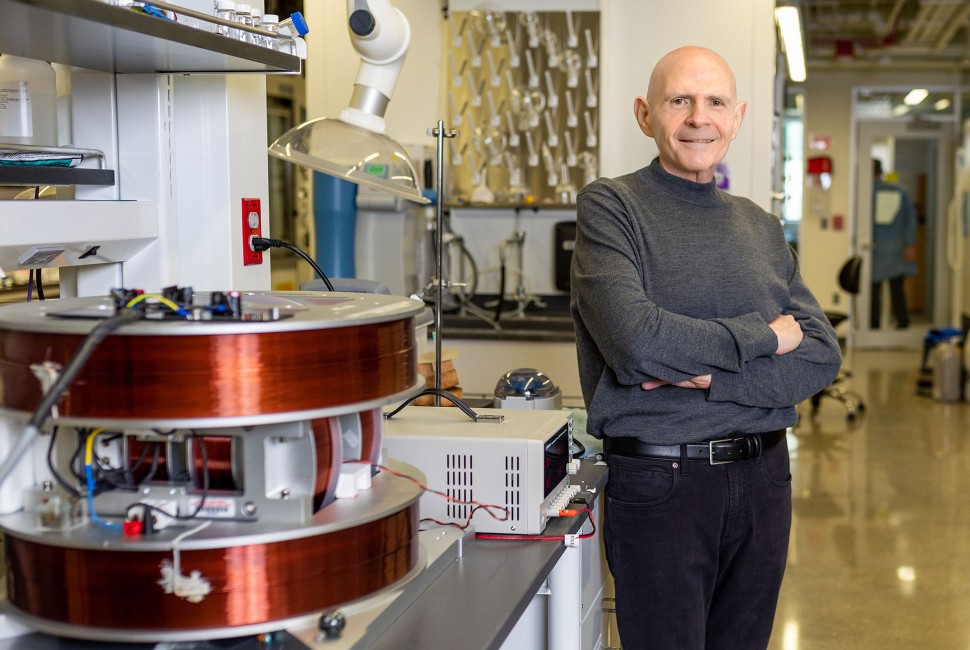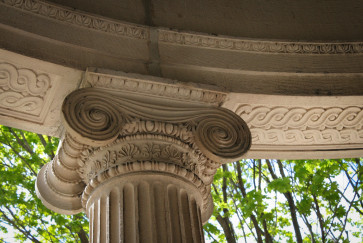Northwestern University professor Samuel I. Stupp has received the 2022 Von Hippel Award, the highest honor awarded by the Materials Research Society (MRS). The prize recognizes “brilliance and originality of intellect, combined with vision that transcends the boundaries of conventional scientific disciplines.”
Stupp is Board of Trustees Professor of Materials Science and Engineering, Chemistry, Medicine and Biomedical Engineering at Northwestern, with appointments in the McCormick School of Engineering, Weinberg College of Arts and Sciences and Northwestern University Feinberg School of Medicine. He also directs the Simpson Querrey Institute for BioNanotechnology (SQI), the Center for Regenerative Nanomedicine and the Center for Bio-Inspired Energy Science, an Energy Frontiers Research Center funded by the U.S. Department of Energy.
Stupp was recognized for his pioneering contributions to the development and understanding of a broad range of molecularly designed supramolecular soft materials that function as bioactive scaffolds in regenerative medicine, matrices for photocatalytic activity and stimuli-responsive robotic structures. He will officially receive the award Nov. 30 at the MRS Fall Meeting in Boston.
The award is named after Arthur von Hippel, who was a pioneer of dielectrics, semiconductors, ferromagnetics and ferroelectrics, and an early advocate of the interdisciplinary approach to materials research.
Stupp’s career has followed that example, as his work combines materials science, chemistry, biology and medicine to create self-assembling materials for functions relevant to medicine and energy.
One of Stupp’s landmark achievements was the development of bioactive materials that can signal cells and be used in novel therapies for regenerative medicine. His work has led to the development of supramolecular biomaterials that mimic the natural structures surrounding cells in the human body and activate the necessary signals to initiate the growth of tissues such as bone, cartilage, muscle, blood vessels and the spinal cord, among others.
His latest breakthrough in this area involved harnessing the “supramolecular motion” within these biomaterials to reverse paralysis through regeneration after severe spinal cord injury.
In the field of energy materials, Stupp has designed bio-inspired supramolecular materials to generate solar fuels, thus mimicking the photosynthetic machinery of plants, soft materials with photovoltaic capacity to convert solar energy to electricity and materials that exhibit robotic functions.
The Von Hippel Award marks the latest in a series of recent honors for Stupp. Since 2020, he has won the American Chemical Society’s Ralph F. Hirschmann Award in Peptide Chemistry; the Nanoscience Prize from the International Society for Nanoscale Science, Computation, and Engineering; and has been elected to the U.S. National Academy of Sciences, the Latin American Academy of Sciences and the National Academy of Sciences of Costa Rica.
He also is a member of the National Academy of Engineering, the American Academy of Arts and Sciences, the Spanish Royal Academy and the National Academy of Inventors, and a fellow of the MRS, the American Physical Society and the Royal Society of Chemistry.


